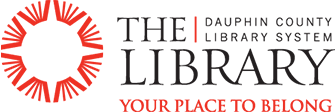Inspiration can come from many sources, and for each of us, it’ll come from different places. I find inspiration in books, in the creativity displayed by artisans and crafters, and in the everyday interactions I have with those around me. When I struggle to find inspiration, I seek out the services of a library or ask for guidance from those I trust. It was while exploring my library’s various resources for blog topic ideas that I happened upon a mention of mentorship. That mention inspired this blog.
What is mentorship? Merriam-Webster defines it as “the influence, guidance, or direction given by a mentor.” Mentors are trusted advisors who generously share their experience, knowledge, and support with others. For those of you who are lucky enough to have had a mentor in your life, you no doubt benefited from the personal or professional guidance that he or she provided you.
There are many different types of mentors. Traditional mentors are those advisors who most closely fit my concept of what a mentor is. They are the older, more experienced individuals who provide one-on-one coaching to those of us with less experience. Peer mentors coach those who are at a similar level of responsibility and status. Group mentors work with more than one individual at time. For even more descriptions of mentor types, search the internet. There you will find definitions for life mentors, career mentors, aspirational mentors, reverse mentors, and so many more. Whatever the type of mentor, the great ones all have one characteristic in common; they have the ability to guide and motivate others.
Becoming a mentor is a worthy endeavor, and if you are so inspired, there are a number of resources that can guide your journey into becoming one.
While performing research for this blog, I discovered several informative TED Talks on this subject. To find them, just perform an internet search for “TED Talks and mentorship.” One of my favorites is How to be a Great Mentor by Kenneth Ortiz.
The library is great place to seek out information on mentoring. Within the collection of the Dauphin County Library System, I found books like the following:
Bridging Differences for Better Mentoring: Lean Forward, Learn, Leverage provides guidance on bridging gaps that arise when mentoring those from diverse cultures. It is available in print, eAudiobook, and eBook (OverDrive) versions.
The Art of Mentoring: Embracing the Great Generational Transition explores mentoring those of the next generation. This is available as an eBook from OverDrive. To use OverDrive, library members will need to register for this service by downloading the Libby App and will need to enter their library card numbers and PINs to sign in.
Tim Gunn: The Natty Professor: A Master Class on Mentoring, Motivating, and Making it Work! is, as described by the publisher, “A … book of lessons on mentorship, teaching, and learning from New York Times bestselling author Tim Gunn, host of the Emmy Award-nominated Project Runway and the reality show Under the Gunn …”. I am currently in the middle of reading this book myself and recommend it to anyone who teaches, anyone who mentors, and to anyone who wants to gain insight into how Tim Gunn inspires others to make it work.
Wisdom @ Work: The Making of a Modern Elder by Chip Conley explores the value of tapping into the experience and knowledge that older employees can offer. The author characterizes them as “Menterns”, since they are interns as much as mentors. While they guide their younger, less experienced counterparts, they, themselves, are learning about modern technologies and business innovations from those they are mentoring.
Informational articles like Finding a Mentor and Making the Relationship Work by Brandi Britton can offer still further guidance. To read it, just click its link. It is one of many such articles that can be found using library databases. To find additional articles on the topic, search the various e-resources found at www.dcls.org/databases or in POWER Library. Note, if you are outside of a library building, you will be prompted to enter your library card number and PIN to gain access to the databases.
While examining these books and resources, I began to more fully appreciate the growing value of mentorship in today’s work and educational environments. The pandemic, recent political divisiveness, and economic conditions have prompted larger than typical numbers of workers to leave or change professions and for greater numbers of students to forgo traditional college educations. For them, the guidance that a committed mentor can offer could greatly enhance their chances of succeeding in this new normal.
If mentorship seems like something that you want be involved with, you can learn about local mentorship opportunities by visiting Dauphin County’s Mentoring Matters webpage. Some local organizations currently seeking mentors include Big Brothers Big Sisters of the Capital Region, Northern Dauphin YMCA, Bethany Christian Services, and Camp Curtain YMCA.
Conversely, if you are in need of the services of a mentor for yourself, try exploring mentorship networks, joining professional organizations, seeking out volunteer opportunities, or consulting senior level supervisors or instructors to find one. For those of you who may be interested in entrepreneurship and small business ownership, you can find mentors at Central PA Score at https://centralpa.score.org/ .
Lastly, let me close by thanking all of you who are or have been mentors. Your expertise and willingness to help others is inspiring.
Ann Marie
Information Services Assistant
References
https://www.mentorcliq.com/blog/7-types-of-mentors
https://www.ted.com/talks/kenneth_ortiz_how_to_be_a_great_mentor
Britton, B. (2005, August 29). Finding a mentor and making the relationship work. Los Angeles Business Journal, 27(35), 39+. https://link.gale.com/apps/doc/A136166322/ITOF?u=pl3414&sid=bookmark-ITOF&xid=4cb32752




